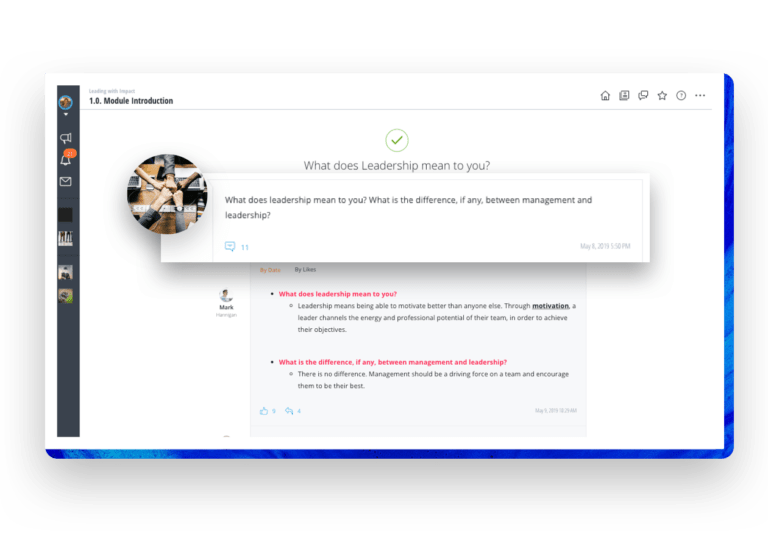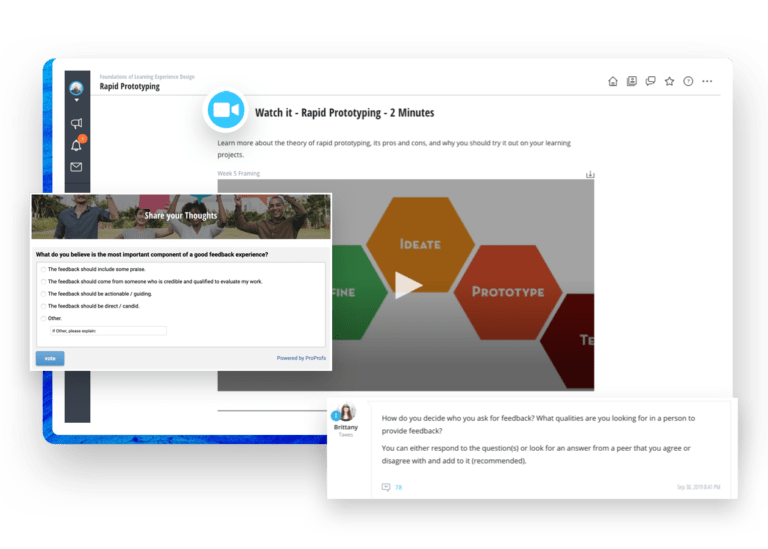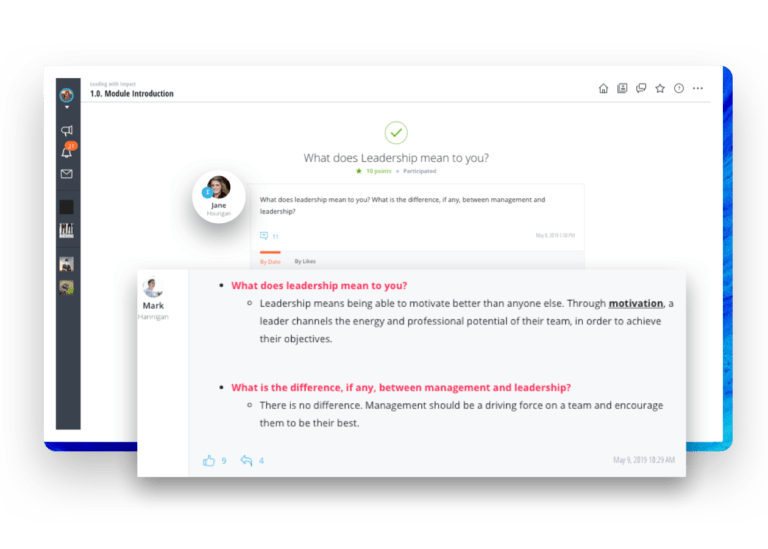Advance your business-related capabilities
Align capabilities with key goals
Focus your upskilling on the key business capabilities your organization needs to thrive — from marketing and supply chain management to customer service and diversity and inclusion. Employees will directly apply new learnings to their roles, driving real business growth.

Connect your global learners
Connect learners with peers, mentors, managers, and leadership in similar functions. Support and coaching is tailored to your organization’s culture, values, and strategic direction in the context of specific roles and pain points. Open learners’ minds through collaborative group projects, hands-on activities, shared insights, and peer feedback.

Flexible learning journeys to expand reach and impact
Transform instructor-led and virtual-instructor-led training by seamlessly blending together the best of synchronous and asynchronous learning. Create configurable journeys that address the needs of divergent learner populations, and bring them together where it counts. Push leadership development downstream and expand the reach of high-impact professional development opportunities to broader populations of learners. With NovoEd, you deliver highly effective leadership training at scale to a much broader set of executives, leaders, and managers.


Your Questions,
Answered
Upskilling employees involves training them to acquire new knowledge, skills, and competencies relevant to their job roles. Through an online platform like NovoEd, you customize training focusing on critical functions such as sales, supply chain management, and human resources or skill gaps. A good program combines interactive learning experiences, collaborative activities, real-world projects, and peer feedback to engage employees in acquiring relevant knowledge and practical skills.
Upskilling employees is vital in adapting to technological advancements and enabling organizations to stay competitive in a rapidly evolving business landscape. Employees enhance their knowledge and skills through training, boosting their performance and productivity and thus increasing morale and job satisfaction. Lastly, in this quickly evolving landscape – technological advancements, new industry trends, regulatory changes – upskilling prepares the workforce for future challenges and opportunities.
Upskilling employees improves productivity, fosters innovation, and enhances employee retention. Upskilling employees equips them with the necessary skills and knowledge to perform their jobs more effectively, leading to increased efficiency. Also, continuously upgrading employee skills contributes to a culture of innovation and adaptability, enabling the organization to stay competitive to meet industry demands and agile enough to respond to changing customer needs.
